Sapien Biosciences and OncoStem Diagnostics collaborate to launch CanAssist-Breast, a Breast cancer recurrence prediction test
Hyderabad, November 10, 2016: Sapien Biosciences, a niche biotech venture committed to develop novel cutting-edge medical diagnostics backed by Apollo Hospitals Enterprise Limited announces its partnership with OncoStem Diagnostics, to launch “CanAssist-Breast”, a robust and cost-effective test to predict the risk of breast cancer recurrence in early stage hormone positive and Her2 negative Breast Cancer patients.
Sapien Biosciences is a bio-repository that enables the development of cutting edge diagnostics and therapeutics for personalizing medicine. Patient samples and associated medical data that are systematically collated and ethically banked at Sapien are a necessary resource for rapid validation of novel diagnostic tests. Announcing the partnership with OncoStem Diagnostics Dr. Jugnu Jain, Co-Founder and CEO – Sapien Biosciences said, “We are very excited to be part of this launch of CanAssist–Breast which represents a paradigm shift in customizing Breast cancer treatment. Development of accurate recurrence diagnostics in cancer is particularly dependent on the availability of reliable retrospective information which is acutely lacking in India. To validate CanAssist-Breast, we mobilized five Apollo hospitals data archives to piece together complete 5 years treatment and outcome data for over 6500 Indian breast cancer patients”.
In India, about 1,50,000 patients are diagnosed of breast cancer every year and currently there are no affordable tests to predict the risk of cancer recurring. As a result, majority of early stage patients with low risk of recurrence are perhaps over-treated and thus bear toxic effects of chemotherapy treatment (CT) that reduces their ‘quality of life’. Additionally, studies have proven that the benefit of chemotherapy in such patients is known to be 10-15% suggesting many patients can be spared conventional CT. Highlighting the importance of CanAssist-Breast, Dr. Manjiri Bakre, Founder and CEO, OncoStem Diagnostics said, “CanAssist-Breast is our flagship product and is a boon for patients as well as doctors. It enables clinicians to assess the aggressiveness of the tumor and personalize and optimize therapy for their patients. The canAssist-Breast test can spare over 60,000 Breast Cancer patients in India and over 660,000 patients worldwide every year from the severe effects and unnecessary costs of chemotherapy-associated toxic”.
CanAssist-Breast test uses clinical parameters in combination with novel biomarkers quantified using a standardized technique which measures protein expression accurately. This information is integrated into a statistical algorithm to stratify patients as “low or high risk” for recurrence. “In India, due to a variety of reasons ranging from awareness to culture, Breast Cancer patients are diagnosed much later, with only 5-8% of patients being Stage 1 at detection. Consequently, the globally available recurrence prediction tests are not very impactful in geographies such as India and SE Asia due to their utility being limited to only Stage 1 patients and the prohibitive cost of the tests. CanAssist-Breast test can be used on a much wider pool of patients up to Stage 2B, and is priced at 1/6th the price of competitor tests and therefore aims to touch the lives of millions of patients worldwide”, added Dr Bakre.
CanAssist-Breast is being launched within the Apollo network in India and the worldwide launch is planned in a phased manner. Commenting on the partnership, Ms. Shobana Kamineni, Executive Vice Chairperson, Apollo Hospitals says, “Affordable and broad based tests to estimate the ‘risk of recurrence’ are an absolute necessity for ‘optimal and personalized’ treatment planning. Apollo has been at the forefront of recognizing personalized medicine as the future of healthcare delivery and has been adopting cutting-edge diagnostic tests to deliver better patient care to improve outcomes. Our association with Sapien is one of various initiatives we have undertaken with a vision to enable personalized medicine approach and we are very excited to see this crystallize through partnerships such as this one with OncoStem. Cancer recurrence space is largely unexplored, especially in India and needs immediate attention. I look forward to Apollo & Sapien pioneering the introduction & adoption of this important innovation from OncoStem across our network of oncology centres for the benefit of our patients.”
CanAssist-Breast is ISO-13485 accredited, and expects to acquire the CE mark by November 2016. These accreditations will enable the launch of the test in global markets later this year. The market for a breast cancer recurrence diagnostic space is currently valued at $ 3 Billion globally and is expected to grow at 18% CAGR. Clinical validation of CanAssist-Breast in India and the US demonstrates a high NPV (negative predictive value) of 95%, which is a measure of the accuracy of the test. The results of the global validation study are currently under review for publication.
About Apollo Hospitals Enterprise Ltd. (AHEL)
It was in 1983, that Dr. Prathap Reddy made a pioneering endeavor by launching India’s first corporate hospital – Apollo Hospital in Chennai. Now, as Asia largest and most trusted healthcare group, its presence includes over 8,600 beds across 50 Hospitals, 1,632 Pharmacies, 92 Primary Care and Diagnostic Clinics, 100 Telemedicine units across 10 countries. Health Insurance services, Global Projects Consultancy, 15 colleges of Nursing and Hospital Management, a Research Foundation with a focus on global Clinical Trials, epidemiological studies, genetic research and the upcoming first Proton Therapy Center across Asia, Africa and Australia.
In a rare honor, the Government of India issued a commemorative stamp in recognition of Apollo’s contribution, the first for a healthcare organization. Apollo Hospitals Chairman, Dr. Prathap C Reddy, was conferred with the prestigious Padma Vibhushan in 2010. For more than 30 years, the Apollo Hospitals Group has continuously excelled and maintained leadership in medical innovation, world-class clinical services and cutting-edge technology. Our hospitals are consistently ranked amongst the best hospitals globally for advanced medical services and research.
About Sapien Biosciences Pvt. Ltd.
Sapien Biosciences is a joint venture between Apollo Hospitals & Saarum Innovations that has created a world-class biobank and personalized medicine company that leverages Apollo’s leadership position in healthcare and Saarum’s cutting-edge life sciences research expertise for novel clinical and R&D applications. Sapien’s primary objective is to use its high-quality bio-repository that integrates ethically consented human samples with associated medical, pathological & treatment data and utilize this resource to develop & deliver high-end diagnostic applications. Further Sapien has entered into an alliance with Apollo Hospitals that allows Sapien to front-end Apollo’s personalized medicine initiatives. This allows Sapien to bring novel cutting-edge diagnostics to Apollo, either on its own or in collaboration with best-of-breed global institutions world-wide thereby enabling world-class healthcare to improve patient outcomes. Sapien has fully functional labs located within the Apollo Health City Campus in Hyderabad. For more information about Sapien Biosciences, visit www.sapienbio.com.
About OncoStem Diagnostics Pvt. Ltd.
OncoStem is a start-up diagnostic oncology company. It is founded by a Dr. Manjiri Bakre, a Cell Biology veteran with significant experience in US, Singapore and India in cancer biology and cancer drug discovery. It is funded by Artiman Ventures, an early-stage Silicon Valley-based venture fund that invests in white space companies that create or disrupt multi-billion dollar markets. OncoStem is primarily focused on developing novel tests which will predict ‘risk of cancer recurrence’ and thus enable physicians to prescribe targeted drugs to prevent cancer recurrence. OncoStem’s initial focus is breast cancer as it is the most common cancer in women across the globe but it also plans to develop similar tests for other cancers such as oral, glioma, lung and colon. For more information about OncoStem Diagnostics, visit www.oncostemdiagnostics.com
For more information, please contact info@sapienbio.com , +91-7207580008, 9704600772
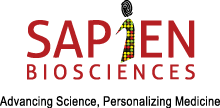
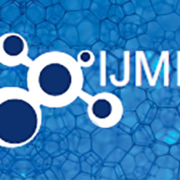
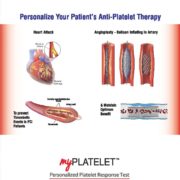
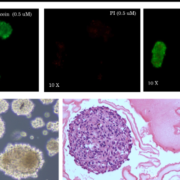

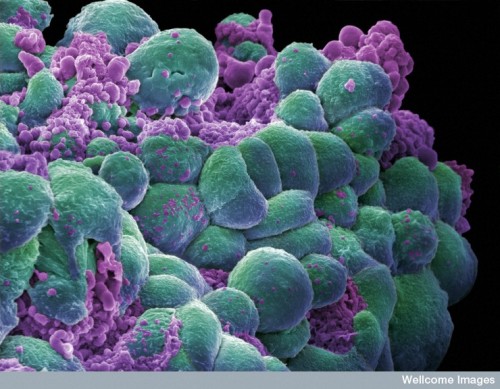

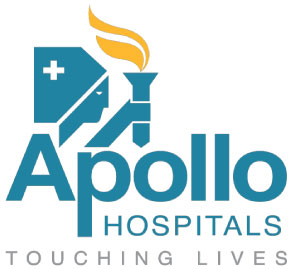
Recent Comments